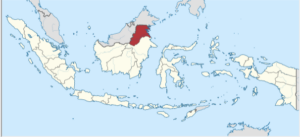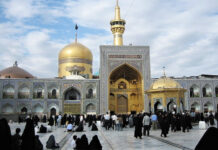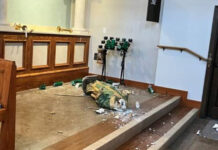Muslims in a village in northeastern Indonesia’s portion of Borneo Island prohibited a church from constructing a worship building, sources said.
Local leaders of Selumit village, in Tarakan City in North Kalimantan Province, stated in a Feb. 28 letter that Mawar Sharon Christian Church’s proposed construction was against state regulations since it would be located amid the predominantly Muslim Tidung tribes, according to news outlet kayantara.com.
Kristianto Triwibowo S.Pi, coordinator of the Indonesian Christian Student Movement (Gerakan Mahasiswa Kristen Indonesia, or GMKI), Region VI Chapter, reportedly said the ban defies the Indonesian constitution and the country’s philosophy of Pancasila, the government’s guiding policy of unity and social justice for all of Indonesia’s various peoples.
“The state guarantees the right to worship and embrace the religion of all people,” Kristianto said in a press statement on March 7. “ Instead of rejecting the services of the Mawar Sharon Church (GMS), which should not happen, we must tolerate each other and maintain diversity.”
The GMKI encouraged the North Kalimantan and Tarakan City governments, along with the Ministry of Religion and various state agencies, to fully protect activities of the church, which is registered with the Ministry of Religion.
Church in Malang
In East Java Province, Malang Regency, a church won the right to continue constructing a building after Muslims in Sumberejo village, Gedangan Sub-District initially prohibited it.
Sumberejo village head Abdul Rohman prohibited the construction of the East Java Christian Church (Gereja Kristen Jawi Wetan, or GKJW) after members of the Sumberejo Nahdlatul Ulama (NU) branch requested a ban in a Jan. 20 letter. The church comprises 20 families, said the chairman of the GKJW Supreme Council, the Rev. Natael Hermawan Prianto.
In the local NU branch’s letter, area Muslims reportedly recommended against construction to maintain “harmonious relationships” and “the comfort and security of the community.”
Pastor Natael, who helped bring together several related parties to resolve the issue, said that talks with the involvement of the Malang Regency Interreligious Communication Forum (Forum Komunikasi Umat Beragama, or FKUB) led to an agreement on March 6 under which residents allowed construction to go forward.
“The church construction will surely be continued,” he told Morning Star News.
Requirements for obtaining permission to build houses of worship in Indonesia are onerous and hamper the establishment of such buildings for Christians and other faiths, rights advocates say. Indonesia’s Joint Ministerial Decree of 2006 makes requirements for obtaining permits nearly impossible for most new churches.
Even when small, new churches are able to meet the requirement of obtaining 90 signatures of approval from congregation members and 60 from area households of different religions, they are often met with delays or lack of response from officials. Well-organized radical Muslims secretly mobilize outside people to intimidate and pressure members of minority faiths.
Indonesia ranked 33rd on Christian support organization Open Doors’ 2023 World Watch List of the 50 countries where it is most difficult to be a Christian. Indonesian society has adopted a more conservative Islamic character, and churches involved in evangelistic outreach are at risk of being targeted by Islamic extremist groups, according to Open Doors’ WWL report.
“If a church is seen to be preaching and spreading the gospel, they soon run into opposition from Islamic extremist groups, especially in rural areas,” the report noted. “In some regions of Indonesia, non-traditional churches struggle to get permission for church buildings, with the authorities often ignoring their paperwork.” — Morning Star News







